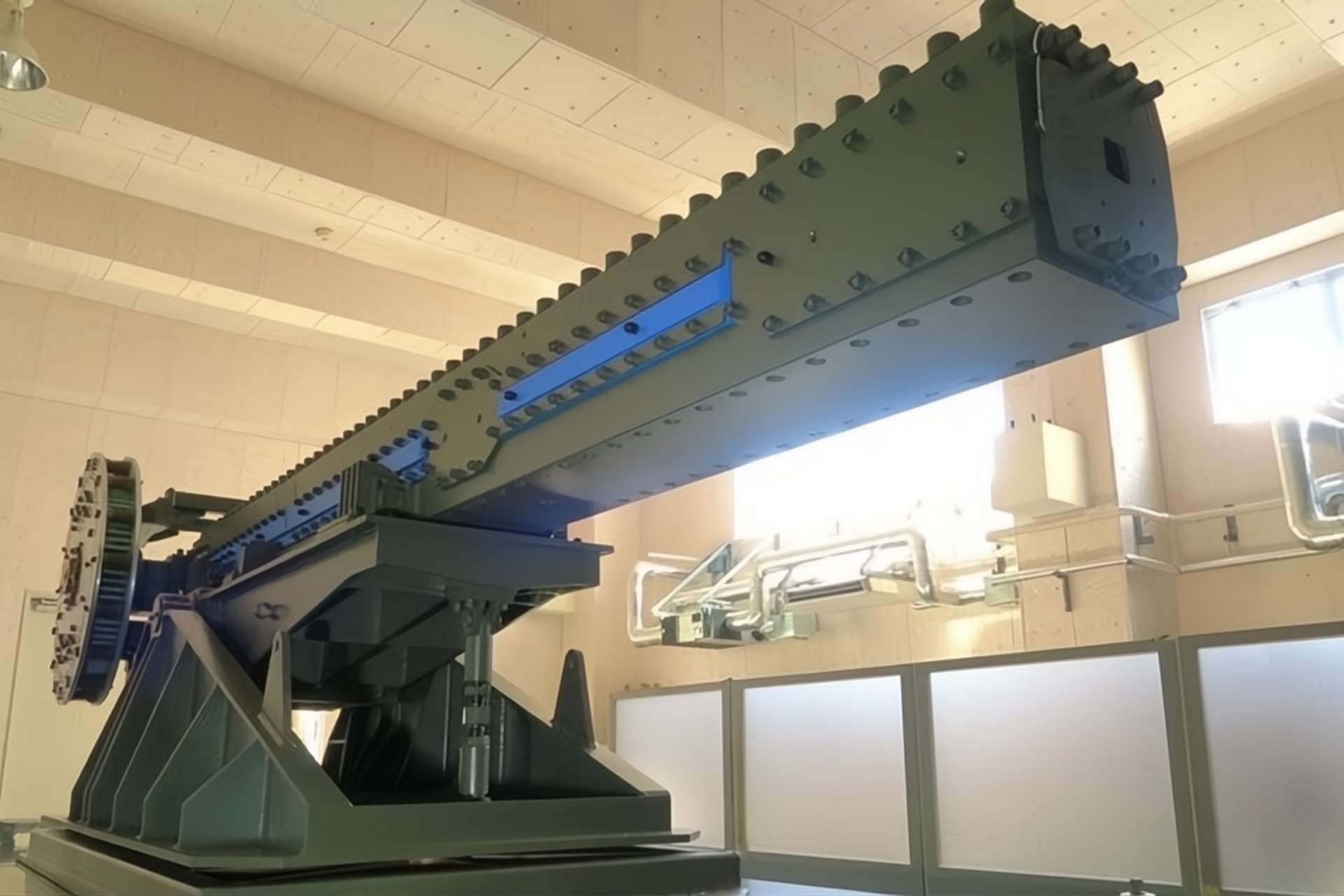Breaking news
Japan, France, and Germany Collaborate to Develop Railgun Technology.
On May 30, 2024, the defense authorities of Japan, France, and Germany signed the "Implementation Guidelines for Cooperation in Railgun Technology," marking a significant step in international collaboration on advanced weapon systems. The Acquisition Technology & Logistics Agency (ATLA) of Japan announced on X the conclusion of the Terms of Reference (TOR) for this cooperation with France and Germany, aimed at exploring collaborative opportunities in developing railgun technology.
Follow Army Recognition on Google News at this link

This is a prototype of the 40mm-calibre railgun that Japan has been testing in 2023 (Picture source: ATLA)
Japan's Ministry of Defense is actively pursuing the rapid deployment of railgun technology, which represents a significant leap in military capabilities through the use of high-speed projectiles. Recently, ATLA sent personnel to the U.S. Navy to leverage American expertise in railgun development, accelerating the practical application of this technology. Previously, Japan had developed a medium railgun capable of launching a 320g projectile at an initial velocity of 2,230 meters per second (Mach 6.5), with an endurance of over 120 shots and a current charge energy of 5MJ, aiming for future advancements targeting a 20MJ charge energy.
France and Germany are working on railgun technology through the Research Institute of Saint-Louis (ISL). The trilateral agreement with Japan will allow these countries to combine their expertise in power sources, railguns, and hypersonic projectiles. ISL is developing a 25 mm railgun prototype named RAFIRA, capable of firing five rounds in a single salvo and accelerating 100g projectiles to a speed of Mach 7.35. This prototype serves as a test model for research into using railguns as air defense weapons.
The railgun initiative is part of Japan's broader strategy to enhance its defense capabilities against aerial and maritime threats. The Japanese Ministry of Defense has been conducting fundamental research on railgun technology for the past decade and is seeking to partner with U.S. defense contractors to overcome challenges related to guidance systems and power storage. Japanese officials have engaged in discussions with companies such as BAE Systems and General Atomics, which have previously worked on railgun projects for the U.S. Navy and Army.
Railguns require significant power and generate considerable heat, posing technical challenges such as energy requirements and structural integrity under extreme electromagnetic forces. Despite these challenges, the potential applications of railguns are vast, including missile defense and long-range strike capabilities. The collaboration between Japan, France, and Germany aims to overcome these obstacles and bring this futuristic technology closer to operational deployment.
In addition to the trilateral agreement, Japan continues to seek partnerships with other nations, including the United States, to strengthen its defense capabilities. Japan's proactive stance on international defense cooperation reflects its commitment to addressing emerging threats and advancing military technology, particularly in the face of threats from China and North Korea.


























